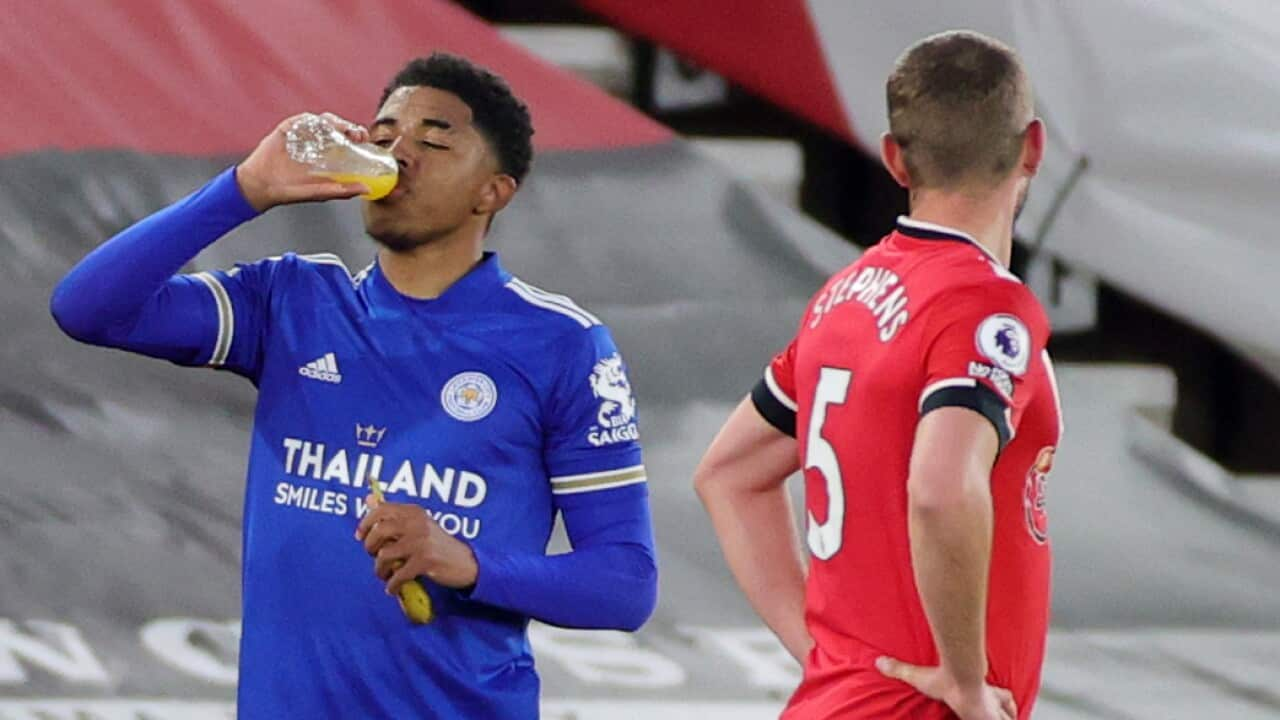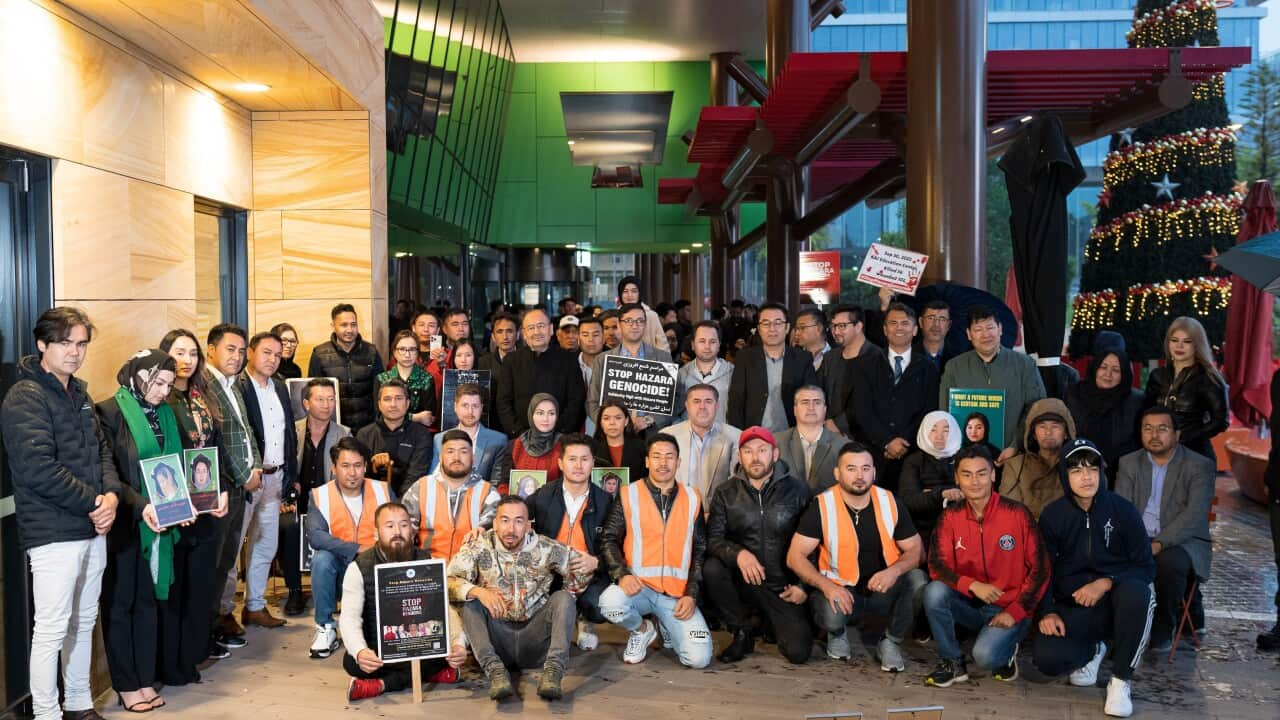Key Points
- Brisbane Roar footballer Rahmat Akbari says it’s “very hard” playing and training during Ramadan.
- More than a billion practicing Muslims worldwide are fasting during daylight hours for a month.
- After playing for Australia at under-17 level, Akbari has since represented the Afghanistan national football team.
Rahmat, who is a practising Muslim, sustained an injury during Ramadan two years ago and says it’ll be “very good” to have an Iftar break for Muslim players competing in the A-League.
“In the month of fasting football gets very hard. We’re in Brisbane where the weather is very warm,” he told SBS Dari.
“We must maintain very good nutrition, drink lots of water after Iftar (breaking the fast), be very careful not to get dehydrated.”

Akbari made his professional debut when he was 17. Credit: Joshua Springfield
Rahmat said it’s “a very good idea” for Muslim footballers to be given an opportunity to break their fast during A-League matches, like in the UK.
It was reported that Muslim players competing in two major British leagues will be given an Iftar break during the holy month.
Ramadan is the ninth month of the Islamic lunar calendar during which healthy adult Muslims are required to fast from dawn to dusk, abstaining from both food and drinks.
“This is a very good idea; it’ll be very good for players who are Muslim,” he said, noting that most of A-League matches are held just before sunset.
“And of course, there’s TV rights and this is something for them, and we can’t ask them to hold the games after Iftar, we can just ask ‘can we have an Iftar break?’ so they take a short two-minute break for us.”
Meanwhile in France, Muslim players in the country’s national team were allegedly asked to postpone their fasting for a few days during Ramadan.
Also in France, Nantes defender Jaouen Hadjam was given an ultimatum to break his fast or miss out on the Ligue 1 game against Reims.
From Afghanistan to Australia
The 22-year-old said he couldn’t even imagine what his life would look like if it wasn’t for the sacrifice of the man who he hails as his hero and idol.
“My father is my hero, he is my idol,” he said.
He (my father) risked his life to come to Australia, he brought us here, went through tough times, didn’t see his family for three to four years, he didn’t see me … now I begun to understand what he’s gone through.
Being a Hazara, Rahmat’s father, Ghulam Akbari, fled his hometown of Jaghori district in Afghanistan’s Ghazni province during the first Taliban rule in 1999, just before Rahmat was born.

Rahmat Akbari with his grandma and brothers at home in Pakistan. Credit: Supplied
Hazaras, the third-largest ethnic group in Afghanistan, have long been persecuted and targeted by Afghan state institutions and militant groups such as the Taliban and ISIS.
During its first reign, the Taliban carried out mass killings of the Hazaras before detonating the monumental statues of Buddha in the Hazara heartland Bamiyan province in 2001.
A recent Amnesty International shows the Taliban have continued to “torture” and “extrajudicially execute” Hazaras.

Rahmat Akbari (third from right) with his mum Hakema Sharefi (left), brothers Mehdi and Besmellah, grandma Lyla and aunt Roya. Credit: Supplied
Rahmat’s father managed to get to Jakarta, Indonesia, before taking the perilous boat journey to Australia but wasn’t able to bring his family over until he got his permanent residency four years later.
The family had moved to Pakistan when Rahmat was one before they were reunited with Ghulam in 2005 in Brisbane.
“I’m grateful to my father for all the hard work that he’s done for our lives and for all his support,” he said.

Rahmat Akbari with his brothers Ali, Mehdi and Besmellah and his dad Ghulam on a day out in Sydney. Credit: Supplied
From local park to Brisbane Roar
Rahmat was introduced to soccer by his elder brother and uncle at the age of six and begun playing with them at the local park.
Then in 2008, a local man who saw them playing at the park, told them that there was a soccer club in the area where they could train and play.
“We didn’t even know what a club was,” he said.
Three years later, he joined the Logan Lightning FC before moving on to NPL team Brisbane Strikers in 2013.
In 2015, Brisbane Roar invited him for a trial and then signed him up for the club’s under-18 team.
In 2016, he took a one-year leave to go to Canberra and train at the Australian Institute of Sport (AIS) centre of excellence before going to Brisbane Roar youth team.
In 2017, Rahmat made his professional debut against Melbourne City, before being loaned to Melbourne Victory in 2018.
In 2019, he was called back to Brisbane Roar.
And in March 2022, he accepted an invitation to play for Afghanistan’s national team, competing in two friendly matches against Jordan and Kuwait in Turkey.
“It felt good, it’s my country, I was born there. Many people were telling me ‘Play for your country’,” he said.
Rahmat’s “number one” player is football giant Cristiano Ronaldo and says he has followed him from Real Madrid to Saudi Arabia’s Al Nassr team.
But being an attacking midfielder, professionally he wants to follow the footsteps of former German star Mesut Ozil.




